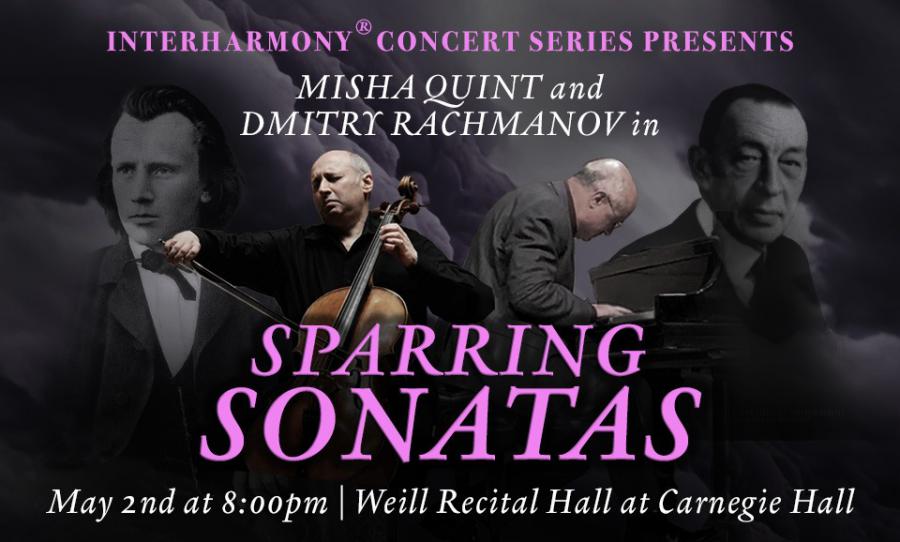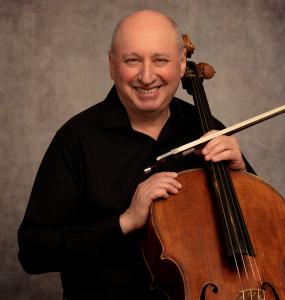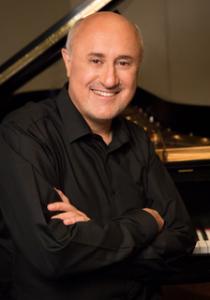
Sparring Sonatas: InterHarmony’s Misha Quint and Dmitry Rachmanov Battle Rachmaninoff and Brahms at Carnegie Hall
Cellist Misha Quint and pianist Dmitry Rachmanov will perform three sonatas with virtuosic cello and piano parts by Rachmaninoff, Brahms, and Boccherini.
NEW YORK, NEW YORK, UNITED STATES, April 17, 2024 /EINPresswire.com/ -- Sparring Sonatas: InterHarmony’s Misha Quint and Dmitry Rachmanov Battle Rachmaninoff and Brahms at Carnegie Hall on May 2 at 8PM
Cellist Misha Quint and pianist Dmitry Rachmanov will perform in “Sparring Sonatas” and battle 3 larger-than-life sonatas with virtuosic cello and piano parts by Rachmaninoff, Brahms, and Boccherini at Carnegie Hall's Weill Recital Hall on May 2, 2024 at 8 PM as part of the InterHarmony Concert Series. Uniquely, all 3 sonatas were originally performed by the composers themselves, and all three composers were outstanding performers. Tickets are available for purchase online at www.carnegiehall.org or by calling CarnegieCharge at 212-247-7800. More information can be found at http://www.interharmony.com/.
ABOUT THE PROGRAM
An aperitivo of Boccherini's Sonata No.6 in A Major will begin the concert. As the most popular of Boccherini’s sonatas, it is meant to showcase the composer-cellist’s ability to present something raucously difficult yet appear deceptively simple and elegantly pleasing to the audience. In Sonata, Quint and Rachmanov will cooperate before the real battle begins, a collaboration where both performer fighters are on the same side, taking on their “enemy” with grace and symmetric sincerity, at the same time staying within the bounds of the traditional sonata form.
After their classical Italian warm-up, Quint and Rachmanov will take on the Brahms Sonata No. 2 in F Major. Feverishly intense, the two fighters will spar together with the harmonic dissonance or conflict emerging as a seeming epic battle, oftentimes triumphant and others dark and brooding. Compared to the composer’s earlier Sonata in e minor, this one exudes the feeling of geniality and warmth, its melodies expressed by both instruments move through forms as a fighter or dancer with haunting themes or as a competition of emotional expression in the thicker, fast passages with remembrance of love lost or of past conquests. Brahms himself premiered Sonata in 1886 with his friend Robert Hausman, for whom the piece was written.
“In the Cello Sonata, passion rules, fiery to the point of vehemence, now defiantly challenging, now painfully lamenting,” the critic Eduard Hanslick wrote of Brahms’s Sonata.
Following a brief respite for the fighters (a.k.a. performers), the final battle you’ve all been waiting for ensues. Quint and Rachmanov will take the stage in the fierce brawl that is Sonata in G Minor for Cello and Piano. (Actually, the 3rd slow movement is quite gorgeous, and considered by many to be one of the most beautiful and meaningful additions to the cello repertoire, used as an encore by many a soloist. But we’ll get to that.)
You’ve probably heard that Rachmaninoff was a piano virtuoso, who toured the world touting his own compositions. He was known for his huge hands and ability to reach THIRTEENTHS on the piano. (Most pianists are happy with a ninth or tenth.) Chords with many notes are strewn throughout his pieces that many pianists struggle to play.
Following a huge disappointment with the adverse reaction to the premiere of his First Symphony, Rachmaninoff fell victim to a nervous breakdown for three years, and (in addition to his Second Piano Concerto) his only cello sonata served as his triumphant return and one of the final contributions to the collaborative realm of chamber music. After that he would focus solely on piano and orchestral compositions for the rest of his life.
Perhaps Sonata reflects Rachmaninoff’s creative struggle in the raging conflict between cello and piano: in its dramatic and elegiac first movement, dark second movement scherzo, the bittersweet lyricism of the third movement with its seemingly obsessive repetition of single notes in its main theme, and the triumphant fanfares in the finale fourth movement.
Will you imagine a battle or a dance, a friendly spar, or joyful collaboration? There’s only one way to find out. Come see “Sparring Sonatas: Quint and Rachmanov Battle Rachmaninoff and Brahms” at Carnegie Hall. More information can be found at www.interharmony.com.
MISHA QUINT, CELLO
Russian-born cellist MISHA QUINT captivates his audiences with his lyricism, passion and dazzling technique. Described by Bordighera TV as a “a musician of virtuosic genius ability and by Harris Goldsmith as a "brilliantly accomplished virtuoso - an embodiment of interpretive and executive music-making at its rarefied best", his repertoire ranges from Bach to premieres of the most outstanding composers of today, including Alfred Schnittke, Sophie Goubadalina, Robert Sirota, Shulamit Ran, Steven Gerber, Nathan Davis, Ezra Laderman, and Stepan Lucky. Quint is Founder and Music Director of the InterHarmony® International Music Festival that take place in Acqui Terme, Piedmont, Italy, InterHarmony® Concert Series at Weill Recital Hall at Carnegie Hall in New York City, and InterHarmony International School of Music. Quint’s recording of Tchaikovsky’s Valse Sentimentale is featured in the 2022 Italian Netflix production of Fedeltà. Recent and upcoming engagements include appearances at Carnegie Hall and Verona, Italy with l’Appassionata and at Carnegie Hall with Antonio Di Cristofano.
DMITRY RACHMANOV, PIANO
has garnered much acclaim for his passionate performances, refined musicianship and brilliant pianism. Hailed as an "indisputable musician" by the Brussels' Le Soir and "suave and gifted pianist' by the New York Times, Rachmanov has been heard at venues such as New York's Carnegie Hall, Washington DC's Kennedy Center, London's Barbican and South Bank Centres, and Beijing Concert Hall, and his tours brought him to Canada, Mexico, Europe, Russia, Turkey and the Far East. He has recorded for Naxos, Navona, Omniclassic, Master Musicians and Vista Vera labels, and collaborated as a soloist with Manhattan Philharmonia, Brooklyn Philharmonic, Indianapolis Chamber Orchestra, London Soloists Chamber Orchestra, Ukraine National Symphony, National Orchestra of Porto, Portugal and Vidin Sinfonietta, Bulgaria, among others. An active proponent of the Russian repertoire, he gave the US premiere of Boris Pasternak's Piano Sonata, broadcast nationwide by the NPR, and his recital "The Art of the 19th Century Russian Character Piece" was noted by the New York Times for "considerable color and focus" he brought to each work. A founding member and the President of the Scriabin Society of America (https://www.scriabinsociety.com/).
Caitlin McConnell
InterHarmony International School of Music
+1 561-288-0046
email us here
Visit us on social media:
Facebook
Twitter
LinkedIn
Instagram
YouTube
EIN Presswire does not exercise editorial control over third-party content provided, uploaded, published, or distributed by users of EIN Presswire. We are a distributor, not a publisher, of 3rd party content. Such content may contain the views, opinions, statements, offers, and other material of the respective users, suppliers, participants, or authors.




